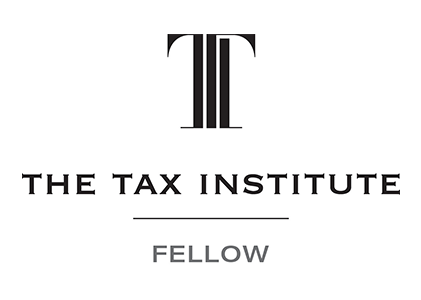
The Federal Government announced a six-month moratorium on evictions of commercial and residential tenants during the COVID-19 health pandemic. This moratorium (and its accompanying code of conduct leasing principles) will inevitably affect SMSFs, which are reasonably heavily invested in real property, according to statistics.
LEASING PRINCIPLES
A moratorium on evictions means that SMSF landlords face the real prospect of tenants falling behind on their rent. However, this does not mean that the tenant is not required to pay rent during the moratorium period. Rather, broadly speaking, parties are encouraged and indeed required to negotiate a rental reduction, deferrals, or rent-free periods if the tenant needs. In terms of commercial rents, a mandatory code has been developed and applies if a tenant or landlord is eligible for JobKeeper payments and has a turnover of less than $50 million. The code includes a common set of principles that must be adhered to, including:
- landlords must not terminate leases for non-payment of rent during the COVID-19 pandemic (or reasonable recovery period)
- tenants must stay committed to their lease terms (subject to amendments)
- landlords must offer reductions in rent (as waivers or deferrals) based on the tenant’s reduction in trade during COVID-19
- benefits that owners receive for their properties (eg reduced charges, land tax, deferred loan payments from banks) should be passed on to the tenant proportionately.
However, granting rental relief – where not carefully justified and documented – can present considerable compliance risks for SMSF landlords. This includes fines of up to $12,600 per trustee and/or in serious instances the SMSF being deemed non-complying, in which case the value of its assets as at the commencement of the income year could be taxed at 45%.
NON ARM’S LENGTH TENANTS
Where the property is held by the SMSF and the tenant is a “related party” of the SMSF trustee, unless care is taken, evidence gathered, and the arrangement is properly documented, there is a real risk that, in granting rental relief, breaches of the following provisions of the SIS Act may result.
- The sole purpose test. In granting rental relief, the SMSF trustee may not be deemed to be acting with the sole purpose of maximising the retirement benefits of members of the fund, but rather acting to assist the related party with their rental expenses.
- The arm’s length test. In granting rental relief to a related party, it may be considered that the fund is not maintaining all investments and transactions at arm’s length, in the same way as they would deal with an unrelated party.
- In-house asset test. In providing rent relief, is the SMSF providing a loan to the related party tenant? In the unlikely event that this loan exceeds 5% of the value of the fund’s assets, the fund can be deemed to be non-complying.
- Prohibition against lending or providing financial assistance to a member or relative. In granting relief to the tenant member or relative, could it still be said that the arrangement is still on commercial or arm’s length terms so as to avoid being deemed “financial assistance”?
It is, however, important to note that the ATO updated its auditor/actuary contravention report (ACR) instructions for the 2019-20 income year to state SMSF auditors will not be required to report in the ACR breaches of the sole purpose test and in-house provisions that may occur as a result of COVID-19 rent relief measures.
ARM’S LENGTH TENANTS
Although the risk is less acute, with potentially only the sole purpose test in play, the same careful evidence gathering and documentation is recommended where rental relief is granted to a party who is not related to the SMSF trustee. Unless it can be demonstrated that the relief granted was actually still in the broader interests of the SMSF, then a breach of the rules is a possibility.
JUSTIFICATION
To establish a strong case for granting rental relief, SMSF trustees should obtain sufficient evidence including the following where applicable:
- the financial circumstance of the tenant. In terms of evidencing this, it may take the form of:
- their eligibility for JobKeeper (which itself requires evidence of a downturn in turnover)
- year-to-date financial statements
- cashflow forecasts
- a report from the tenant’s registered tax agent that the tenant is experiencing COVID-19-related financial difficulties that may impact their ability to pay the agreed rate of rent
- government restrictions that may impact the tenant long-term, such as those imposed on large restaurants where, even when they are permitted to open, social distancing requirements in the venue may still nonetheless impact capacity and profitability
- any comparable rental relief that is being offered by arm’s length landlords to their tenants
- the difficulty in leasing out the property to a new tenant, should the current tenant default on the lease. The location of the property, or the type of property may mean that retaining the current tenant – even with rental relief – is in the long-term best interests of the SMSF, particularly where the current tenant has an otherwise good history in terms of paying on time and looking after the property
- to the above point, if the property was untenanted, it may be more difficult to obtain insurance cover. Additionally, untenanted properties are arguably more vulnerable to break-ins and natural deterioration/rundown.
It is important that any rental relief that is granted is proportionate to the above, and that the new arrangement is properly documented by amending the lease agreement between the parties, including the reasons for any reductions.
In summary, where the related-party lender provides any relief to the SMSF that is not comparable to an arm’s-length arrangement (that it may offer unrelated parties in these fraught economic times), then the ATO may then apply the non-arm’s length rules to tax any net income or future capital gain from the property (for the entire future period of ownership) at the top individual marginal tax rate. Whether these provisions are applied may ultimately depend on whether the SMSF can justify with documented evidence that the decision to alter repayment terms is done on a commercial basis as if the parties were unrelated.
Tax Store Accountants Glen Waverley.
Our Management Credentials




